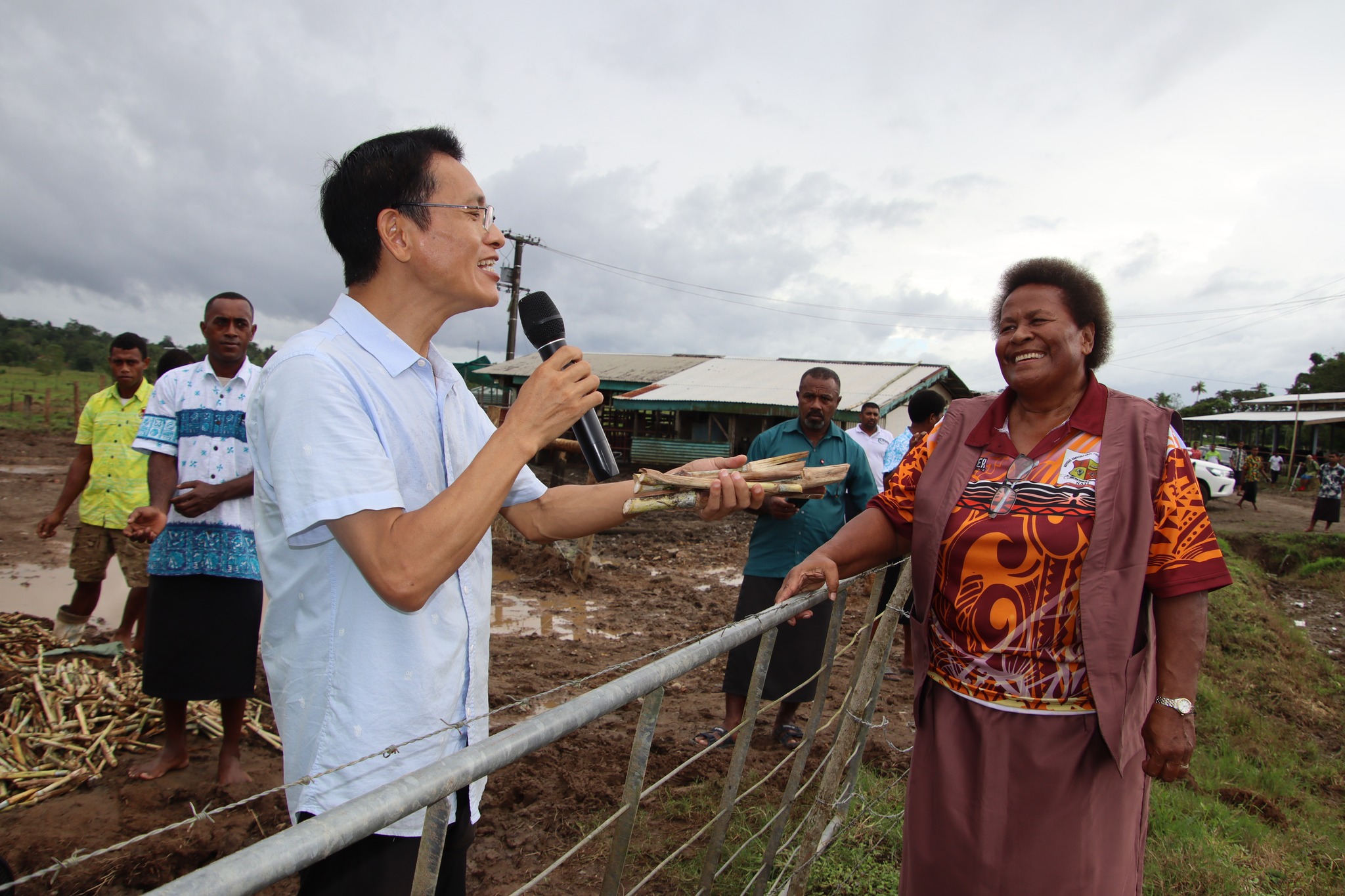JUNCAO GRASS BOOSTS DAIRY, LIVESTOCK AND MUSHROOM FARMING
June 7, 2025

Animal nutrition is crucial for maintaining animal health and well-being, impacting growth, development and productivity.
This was the message to students and farmers that attended the Fiji Juncao Livestock Farming Field Day at the Navuso Agricultural Farming Institute (NATI) yesterday.
Speaking to the 150 participants, Deputy Secretary for Agricultural Development for the Ministry of Agriculture and Waterways, Dr. Tekini Nakidakida said that the ministry has invested in nutritional development through various programs.
“These programs include Beef Extension, Dairy Extension, Dairy Development grant to the Fiji Cooperative Dairy Company Limited (FCDCL) and the Beef Revitalisation Program. Through these programs, farmers have already been provided with small equipment and machines such as shredders and chaff cutters,” explained Dr. Nakidakida.
“Fiji is witnessing a remarkable agricultural transformation, thanks to the introduction and widespread adoption of Juncao grass, a sustainable and multi-purpose crop developed in China. Since its launch in Fiji in 2014 through a partnership between the Fijian and Chinese governments, Juncao grass has emerged as a game-changer for the country's dairy, livestock, and mushroom industries.”
More farmers across Fiji have now moved into planting Juncao and the China-Fiji Juncao Technology Demonstration Center in Nadi has played a central role in transferring this innovative technology to local farmers and agribusinesses.
“Juncao offers high-yield, drought-resistant fodder which provides a consistent and nutritious feed supply for cattle and other livestock, even during Fiji’s dry seasons.”
In addition to its nutritional benefits, Juncao helps combat soil erosion, improve salinity, and rehabilitate degraded land—offering long-term environmental gains for Fijian agriculture.
Juncao’s versatility extends beyond animal feed. Its stems are used as a substrate for growing edible and medicinal mushrooms such as oyster, shiitake, and enoki.
Mushroom farming is becoming a fast-cash opportunity for those involved and they can harvest mushrooms in as little as 6 to 10 days, earning up to FJD $380 per cycle.
Juncao grass contributes significantly to Fiji’s sustainability goals. It absorbs carbon dioxide, prevents soil erosion, and restores land quality—all while supporting rural incomes and food security.
“The Juncao project is a prime example of how green technology can drive inclusive, climate-smart development,” said Dr. Nakidakida.
“It supports our national
priorities in agriculture diversification, rural development, and climate
adaptation.”
Principal of NATI, Mr. Uraia Waibuta thanked the officials from the China-Fiji Juncao Technology Demonstration Centre for the opportunity to share their knowledge on Juncao.
“This can be the solution to increasing milk production in our country, as well as addressing feed shortages during dry spells,” said Mr. Waibuta.
“We are thankful for this partnership that is helping us build the capacity of our students and farmers to adopt climate-resilient, cost-effective practices.”
After a quick demonstration and planting of Juncao grass at NATI, participants traveled to dairy farms in Waidalice and Waimaro in Tailevu North to witness the wonders of Juncao technology and how farmers have been using it to their advantage.
ENDS
